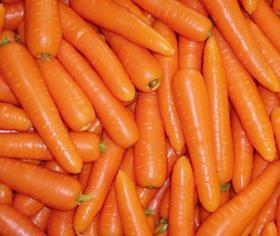
A new study has further cemented the old truism that eating carrots can help your eyesight.
The Harvard University-led study used data from a population survey that tracked more than 100,000 over-50s over a period of 25 years.
It found that those who consumed the highest levels of the carotenoids lutein and zeaxanthin - the pigments which give vegetables like carrots, peppers and spinach their colours, and which can slow the progression of age-related macular degeneration (AMD)- had a 40 per cent lower risk of developing the advanced form of the condition than those who ate the least.
Lutein and zeaxanthin are found in high concentrations in the macula of the eye, where they are known as the macular pigment.
The macular pigment protects the macula by interacting with free radicals to prevent cell damage and by filtering out damaging blue light.
The study also found those who consumed the highest levels of some of the other forms of carotenoids - alpha-carotene, beta-carotene and beta-cryptoxanthin - had a 25 to 35 per cent lower risk of advanced AMD,one of the most common causes of vision loss in older people.
Carrots and sweet potato are sources of alpha and beta-carotene, while beta-cryptoxanthin is found in fruits like oranges and peaches.
The researchers did not find any link between carotenoids and the intermediate form of AMD, however.
The research features in the journal JAMA Opthalmology.



